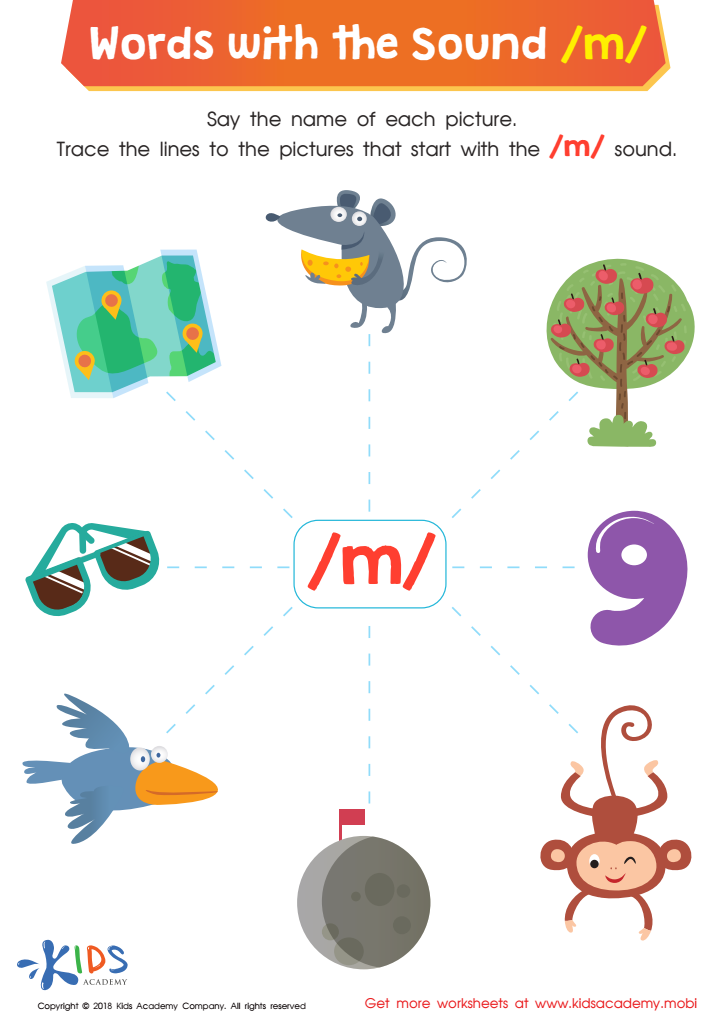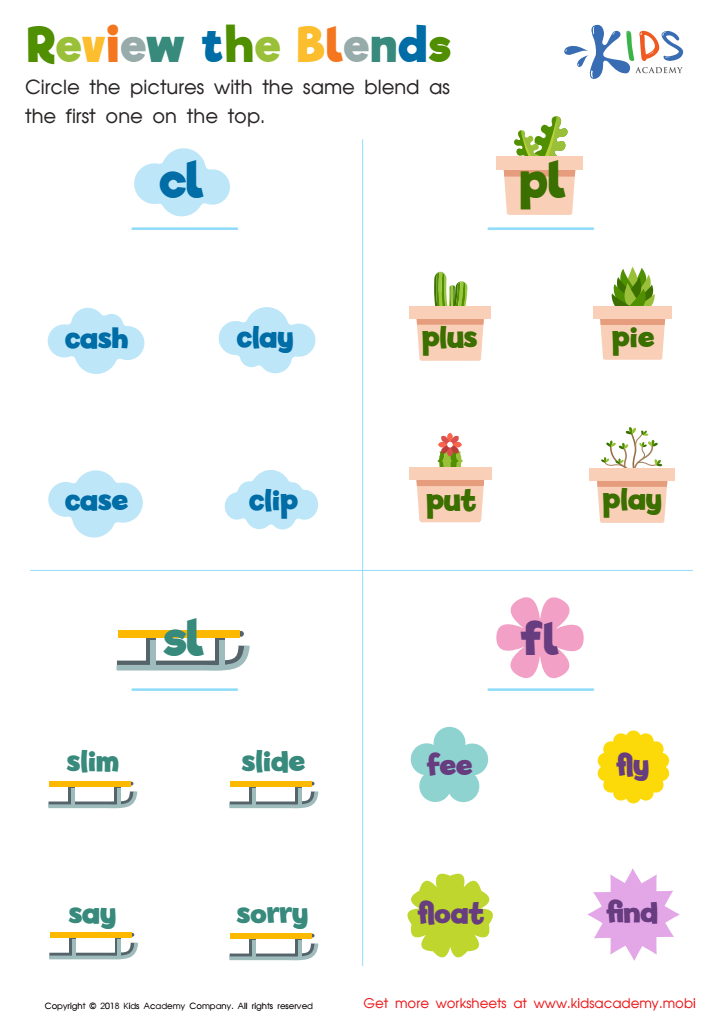Phonics practice Consonants Worksheets for Ages 3-7
5 filtered results
-
From - To
Unlock your child’s reading potential with our "Phonics Practice Consonants Worksheets," designed specifically for ages 3-7. These engaging and interactive worksheets help young learners master consonant sounds through fun activities and colorful illustrations. Perfect for at-home learning or classroom use, our resources encourage phonemic awareness, improve pronunciation, and build foundational literacy skills. From tracing letters to identifying consonant sounds in words, children will enjoy every step of the learning process. Foster a love for reading early on with worksheets that make phonics practice enjoyable and effective. Dive into our collection today and watch your child's confidence soar!


Twin Onset Worksheet


Words with sound p Reading Worksheet


Words with sound f Reading Worksheet


Words with Sound M Reading Worksheet


Review the Blends Worksheet
Phonics practice, particularly with consonants, is vital for children aged 3-7 as it lays the foundational skills for reading and writing. During this crucial developmental period, children are honing their ability to recognize and produce sounds, which are directly tied to their literacy skills.
Understanding consonants enhances phonemic awareness, enabling children to distinguish individual sounds in words. This skill is essential for decoding unfamiliar words, paving the way for fluent reading. As children learn to associate consonant sounds with letters, they become more proficient in linking sounds to their corresponding symbols, which is fundamental in both reading and spelling.
Furthermore, early exposure to consonant practices supports vocabulary development and fosters confidence in language use. When children learn consonants, they start building their first words, nurturing their enthusiasm for reading. This empowers them to engage with texts actively, shaping a positive relationship with literacy.
Lastly, consistent phonics practice nurtures critical thinking skills. As children analyze words and their components, they develop problem-solving abilities essential for their academic journey. For these reasons, parents and teachers should prioritize consonants’ phonics practice, ensuring children have a solid linguistic foundation that will benefit their educational growth for years to come.

 Assign to My Students
Assign to My Students















